Pop-up Symposium 2023
Posted by Toby York. Last updated: April 27, 2023
Accounting Cafe members met in person near Oxford on Friday 21 April 2023, for its “Pop-up Symposium 2023”
It was a delight to spend the day with enthusiastic, energetic, and creative accounting educators at Accounting Cafe’s Pop-up Symposium. Oxfordshire’s beautiful countryside helped, as did the inspiring and engaging content.
Lightning presentations
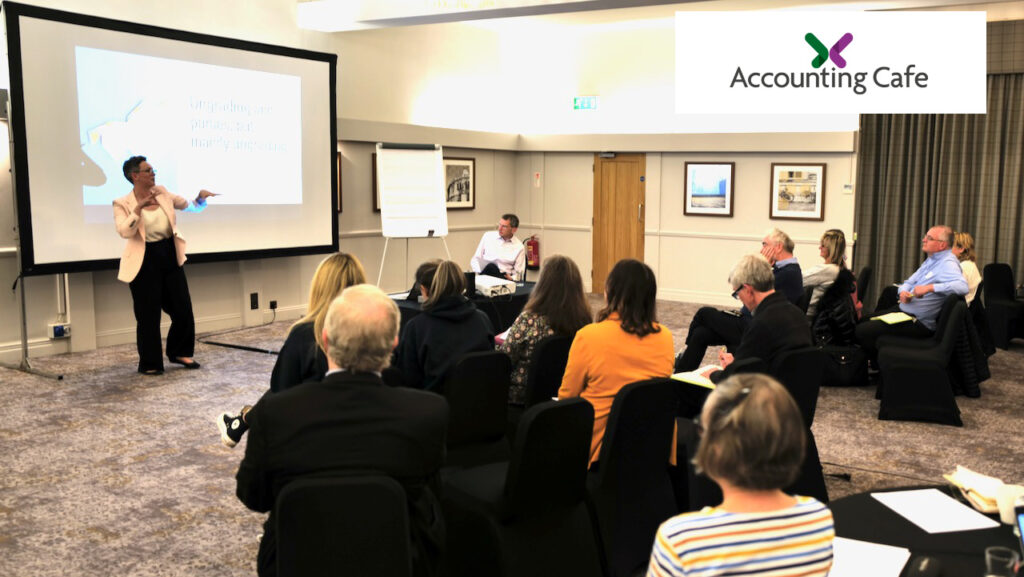
Becky Bate of Aston University started with the thought-provoking idea of “ungrading”. This is not a particular practice but “raises an eyebrow at grades as a systemic practice”. Becky challenged us to describe the difference between 65% and 67% grades and to think about the message we convey by ranking students. She questioned whether this is how we should evaluate learning. She provided practical steps to move towards an “ungraded” assessment environment. Examples incuded using scales with fewer gradations, self-assessment, authentic assessment, and student reflections.
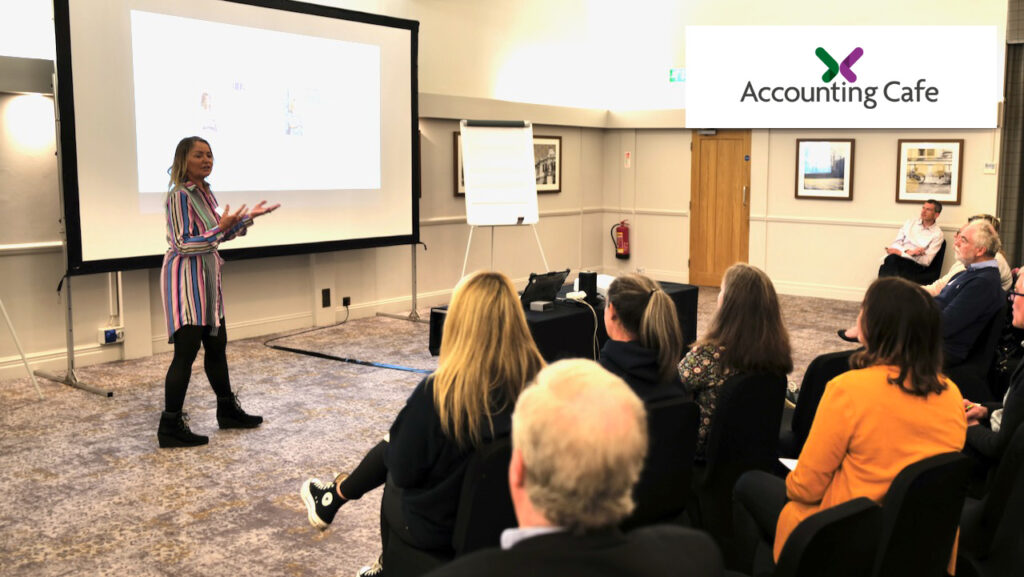
Monina Hurl, also from Aston University, outlined the benefits of workbooks as part of the learning process. She requires her students to complete these alongside using other teaching materials. This creates a more participatory and active environment that enhances the student experience and deepens learning.
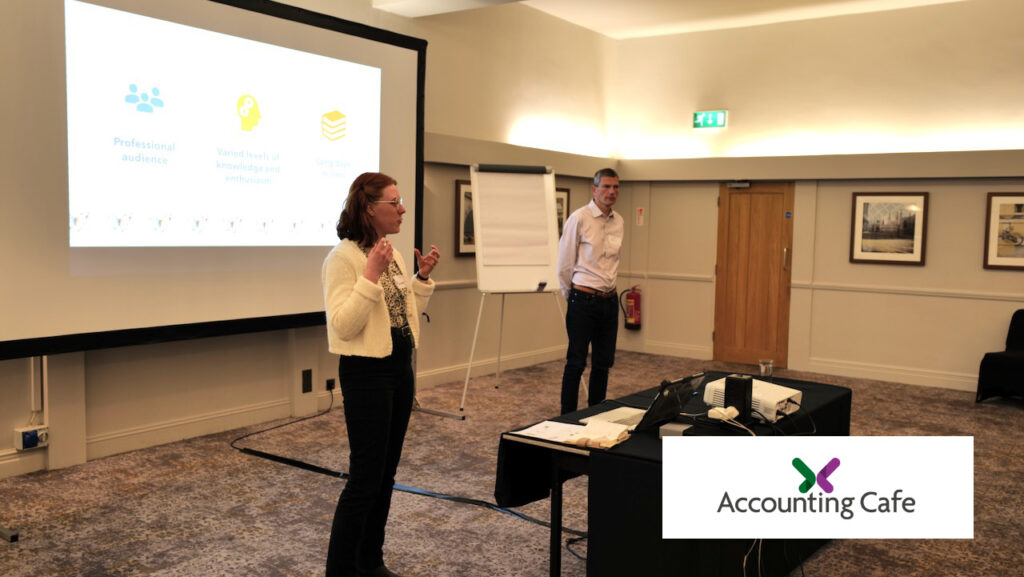
Marianne Hægeland reported on her use of the Colour Accounting Learning System with MBA students at Winchester University. This system uses a two-colour pop-up board and tickets that are used to simulate the posting of accounting transactions. In her experience, this lends itself to an audience with varied knowledge and enthusiasm while maintaining high engagement during extended teaching days.
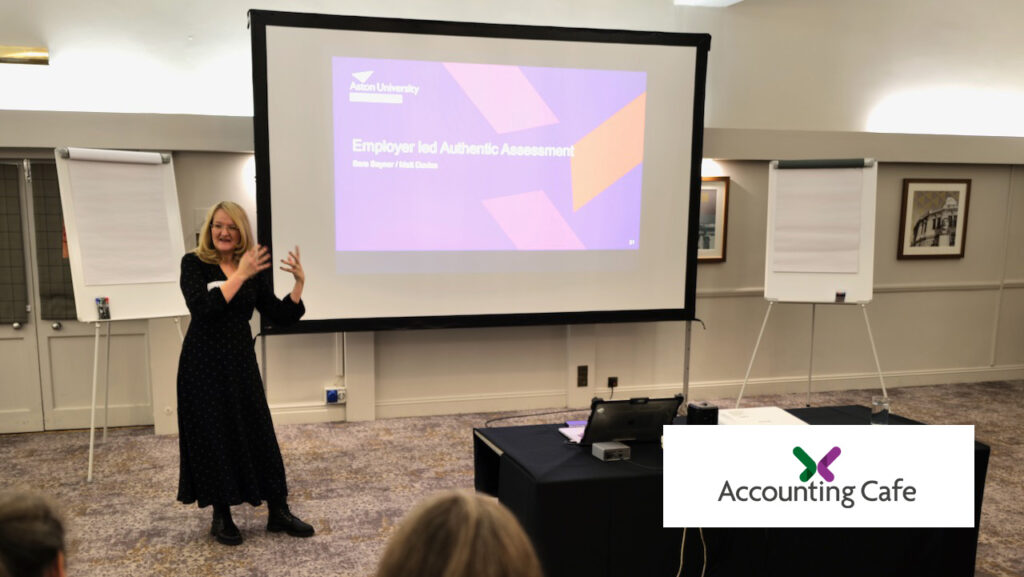
Sara Saynor, part of a well-represented team from Aston University, demonstrated how she uses an authentic assessment method that requires students to create a strategic report for the board of Boots PLC. Students are given a practical task that requires strategic understanding, broad commercial and academic research, and the application of technical accounting skills. The open nature of the assignment provides students with opportunities to demonstrate planning skills, identify robust information to support decisions, collaborate with peers, and confidence to make recommendations.
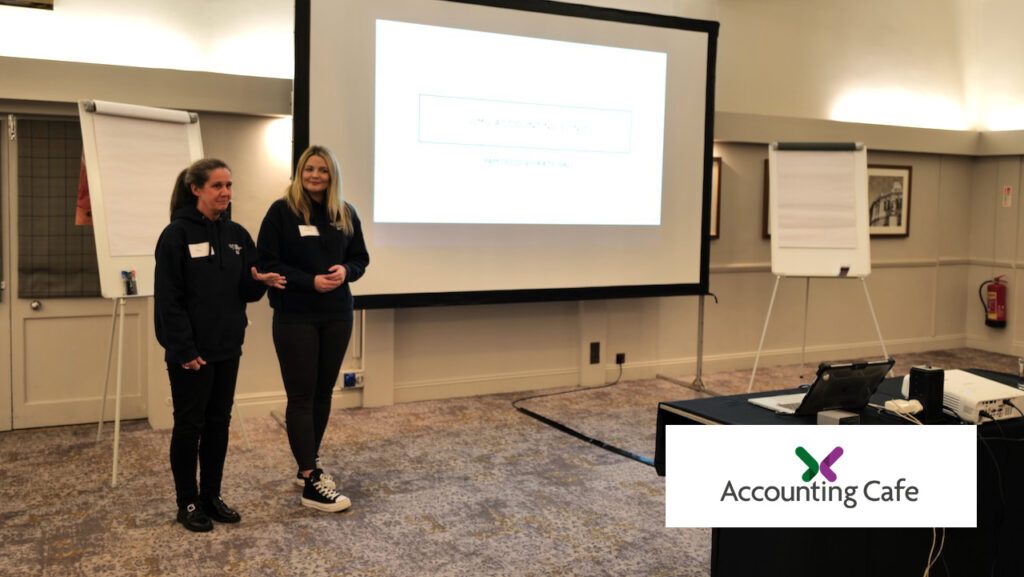
Allowing students to complete independent examinations for charities sounds like an ambitious project. Still, Pam Dodd and Katie Hall from Liverpool John Moores have trained more than 100 students to do just that. The LJMU Accounting Clinic serves churches, mental health charities, and community support clubs, saving them more than £12,000 in professional fees. They acknowledge it has been complex and time-consuming, but are offering to share their experience and expertise with other universities considering similar schemes.
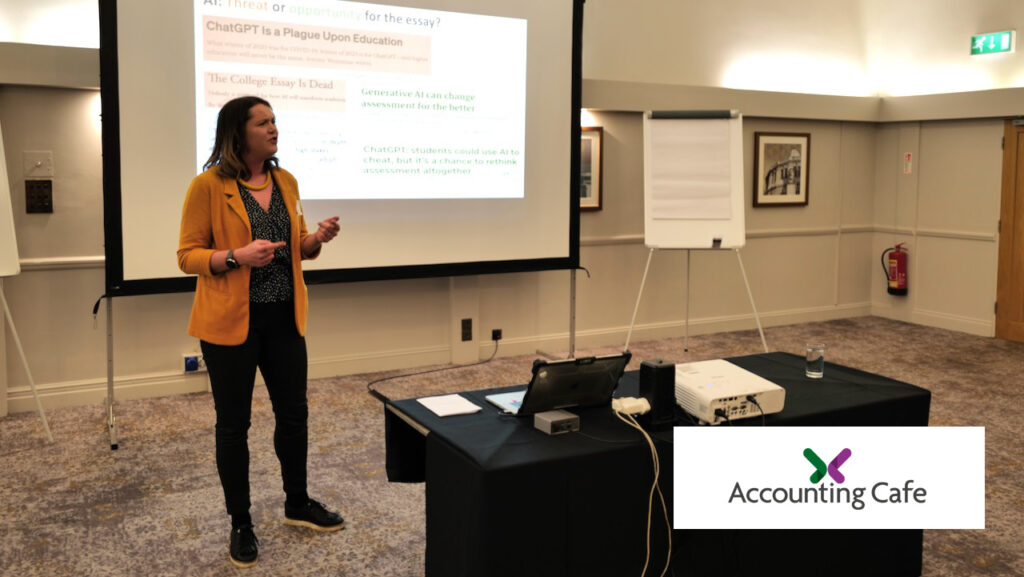
No gathering would be complete in 2023 without some talk about ChatGPT, and Sam Bell from the University of Bristol didn’t disappoint us. She identified threats and opportunities that these AI language models present, especially for essay-based coursework assessments. However, she gave a clear blueprint for embracing the challenge within current curriculum and assessment constraints. For example, she encourages students to come up with their own authentic essay topics to encourage engagement, and assesses the processes involved in essay writing rather than style.
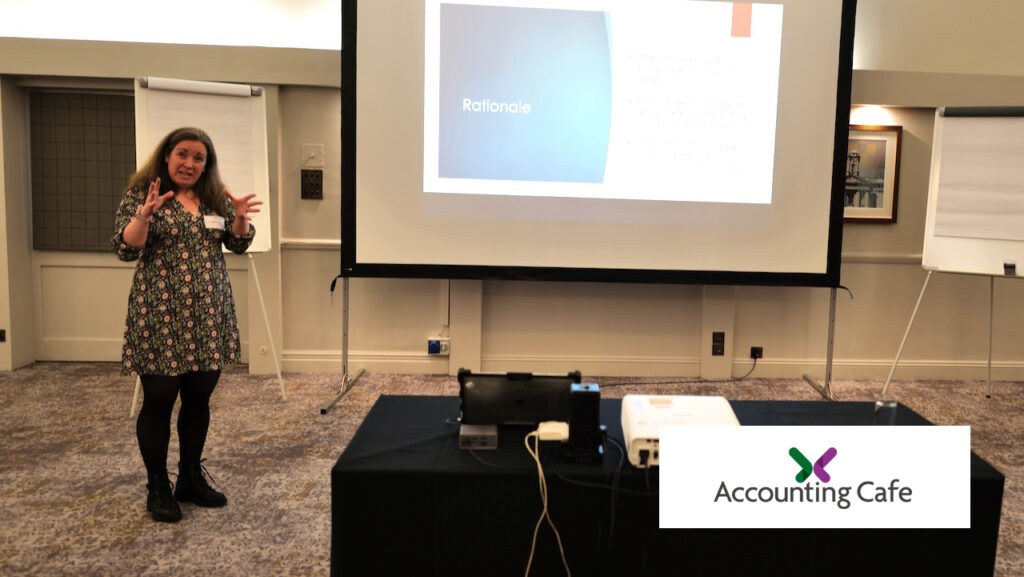
Lindsay Hoyle from Winchester University gave us an entertaining example of her newly-acquired vlogging habit. She developed this in response to her concern about how little students appeared to know about current affairs and their inability to apply knowledge and skills. Using an article or feature from the media, she creates regular short videos explaining what the story means to her and how it relates to specific syllabus areas.
The Colour Accounting Learning System
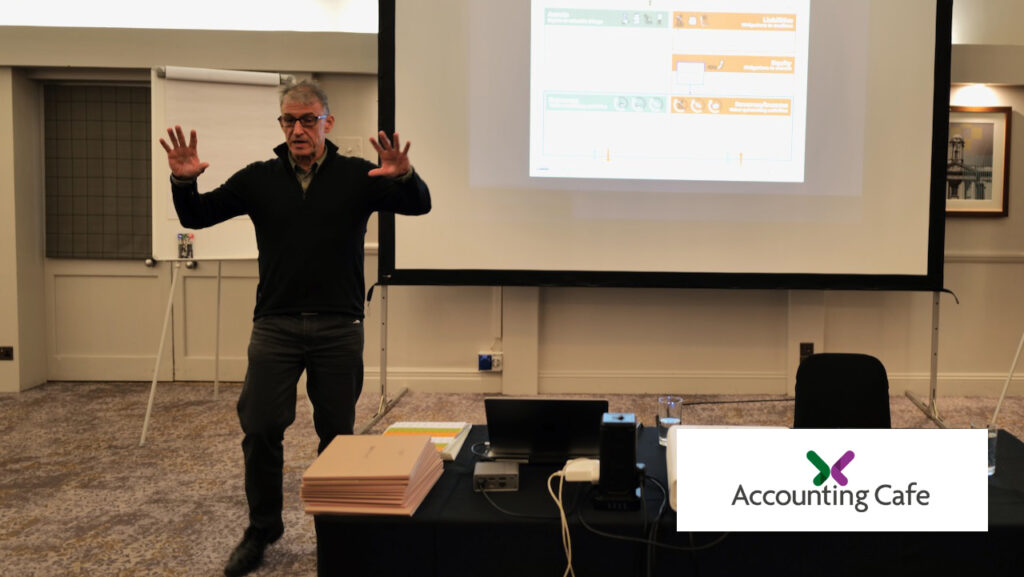
The symposium was sponsored with the generous hospitality and support of Wealthvox, the owners of the Colour Accounting Learning System. Its founder and CEO, Peter Frampton, shared his philosophy of the company and its mission to help everybody, everywhere, acquire the knowledge and confidence to join “the financial conversation”.
He spoke of his experience of learning accounting, which was miserable and initially failed. This convinced him that there must be a better way to learn accounting. He and his team have perfected the Colour Accounting Learning System over the last 20 years. It uses a physical board to represent the accounting framework. The debit-side is green while the credit-side is orange. Learners use similarly coloured tickets to post transactions to the board.
Wealthvox specialise in commercial training so Peter called on people with experience of using the system in educational settings.
Colin Leith of Pearson has worked extensively to provide Colour Accounting teaching guides for teachers. He has mapped Colour Accounting to the curriculum specifications of A-Level and BTEC Business. Using Accounting Cafe as a platform, he’s produced lesson plans and resources for about 90 hours of teaching for each.
Sean Crevier, a high school teacher from Wisconsin, described his experiences of doing something similar in the US. He has developed accounting workbooks for teachers and students to use Colour Accounting effectively.
Dave Kolitz, from Exeter University, shared his experiences of embedding Colour Accounting into MBA and undergraduate courses. He too supplements his teaching with extensive Colour Accounting related teaching and assessment materials.
Activity: Challenge Accounting
Paul Jennings, co-founder of Accounting Cafe and Dave Kolitz gave us wise and kind guidance in directing a workshop activity. They provided a list of contents for a theoretical accounting course with the challenge of creating a learning sequence. They had constructed the exercise cleverly and it gave rise to broad and deep discussions and observations.
We debated the usual things, such as whether the balance sheet comes before the profit and loss account. But there was also much else to discuss. For example, Louis Bigge, an instructor from John Hopkins University, suggested considering enabling outcomes versus terminal outcomes. Another group discussed the politics of accounting and how this can (or should) be conveyed. Marion McGowan of Middlesex University suggested that before a specific sequence could be determined, far more diagnostic work was required regarding the learners and their circumstances.
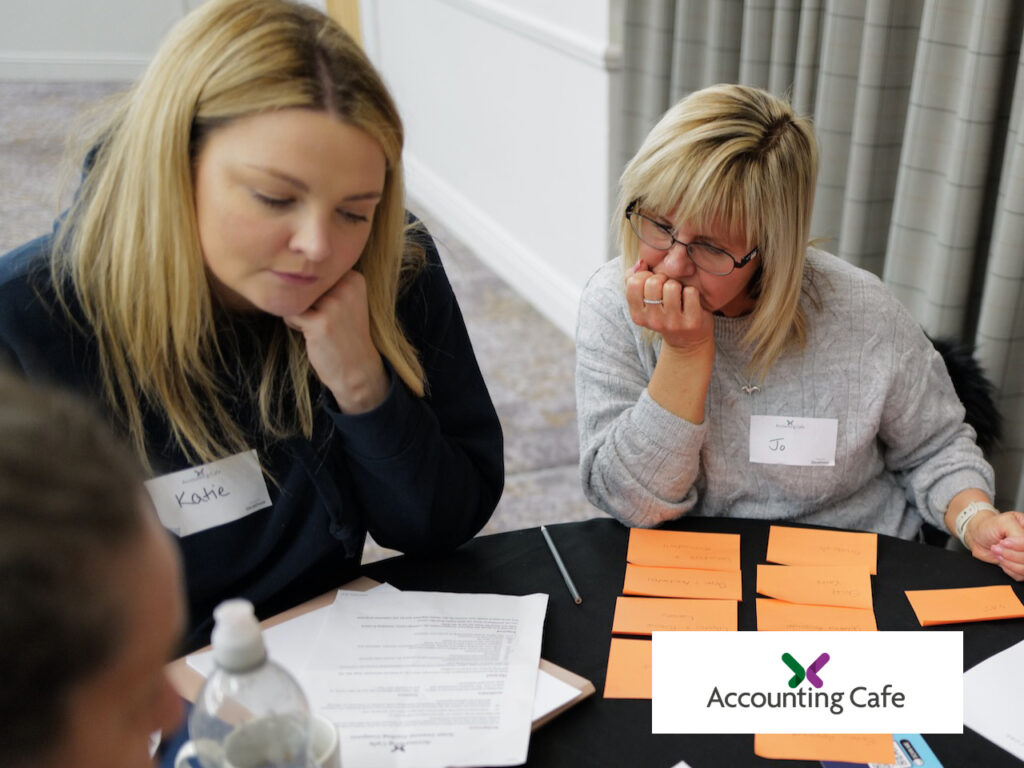
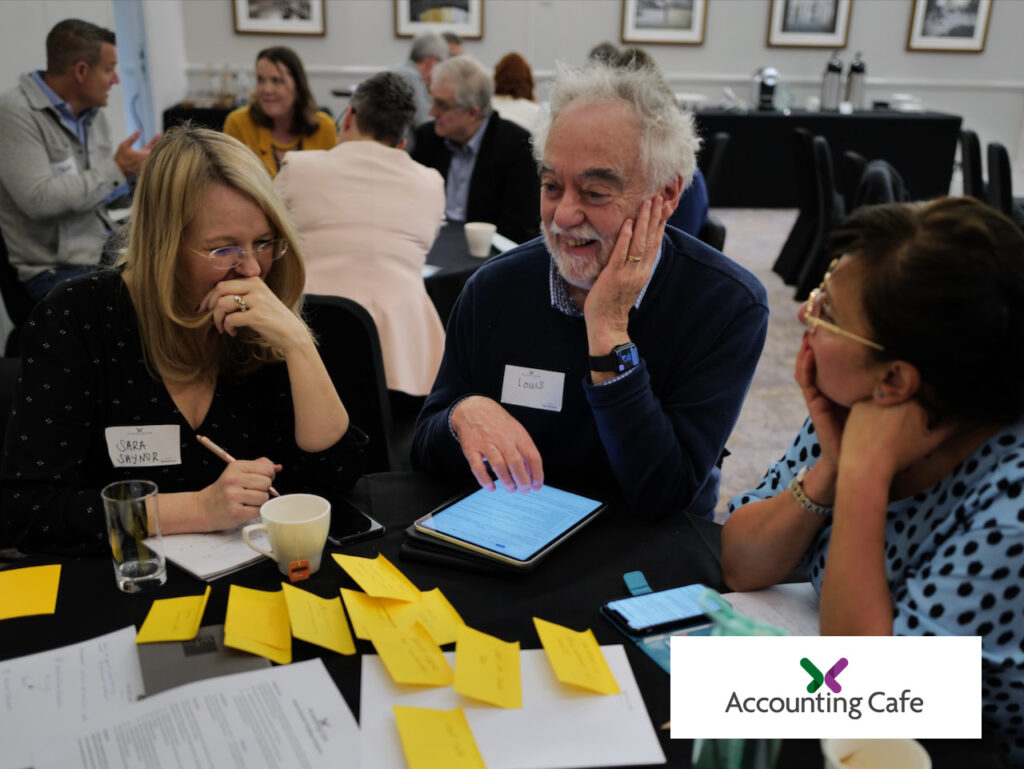
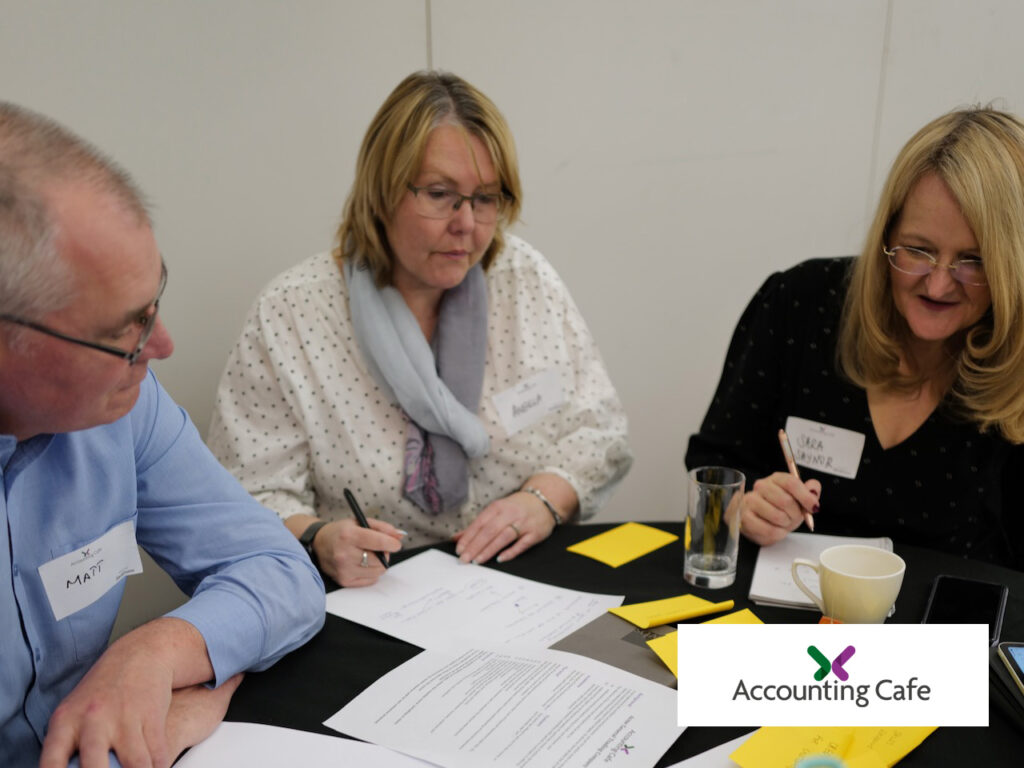
By the end of the day, there was no doubt that accounting education is in the hands of some incredibly creative and energetic teachers and trainers. Holding its first in-person event, the Pop-up Symposium was also a significant milestone for Accounting Cafe. By all accounts, it got off to a tremendous start with enthusiastic endorsement from attendees.
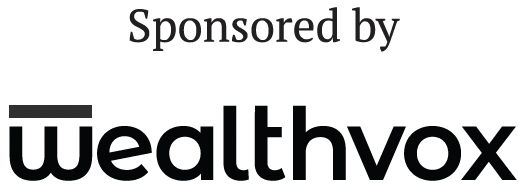
© AccountingCafe.org
Part of the Teaching tips series of articles
Join the Accounting Cafe community



